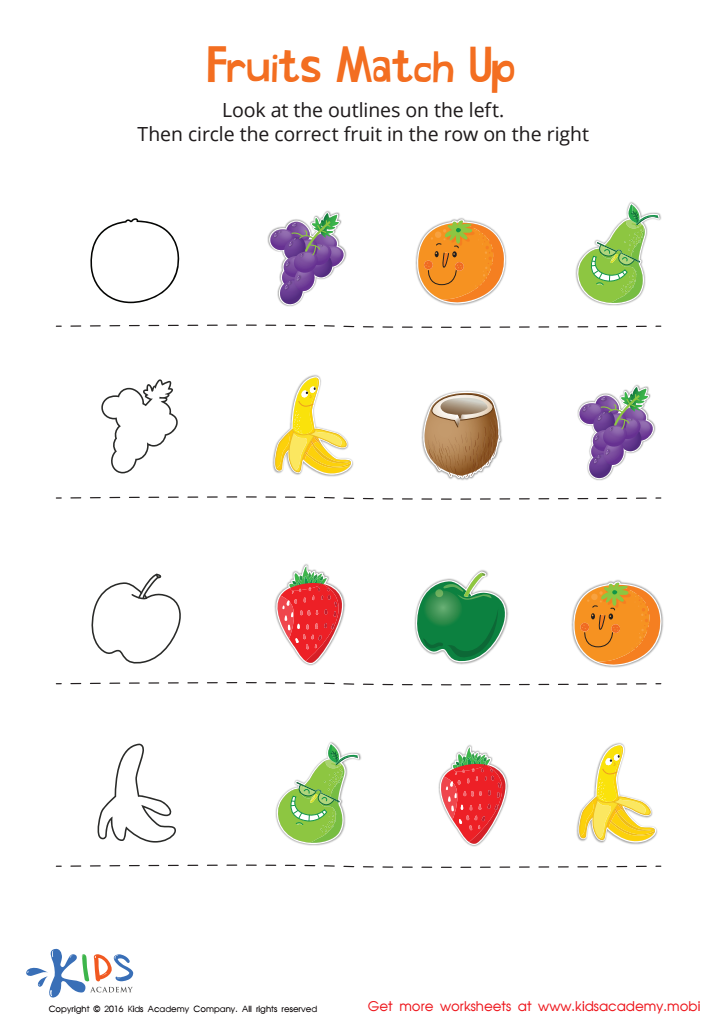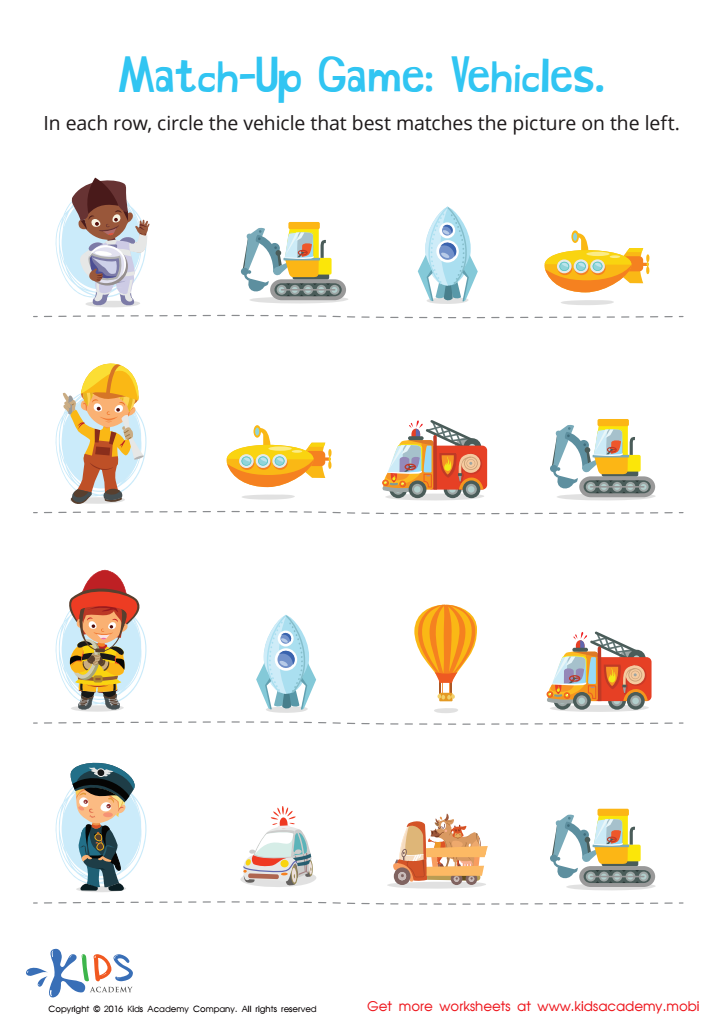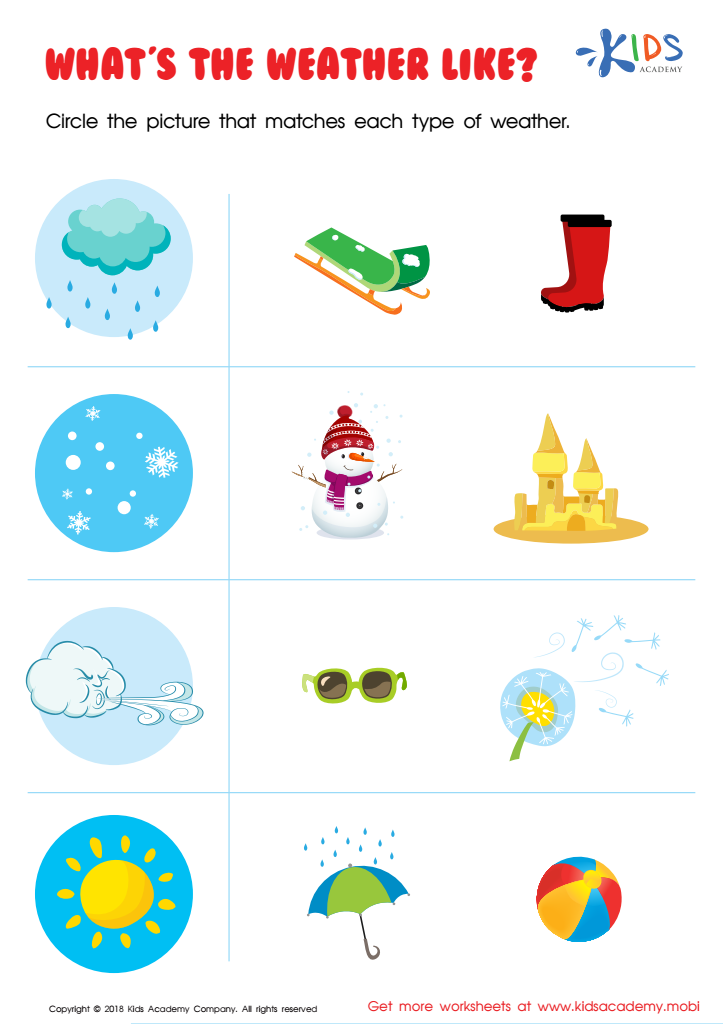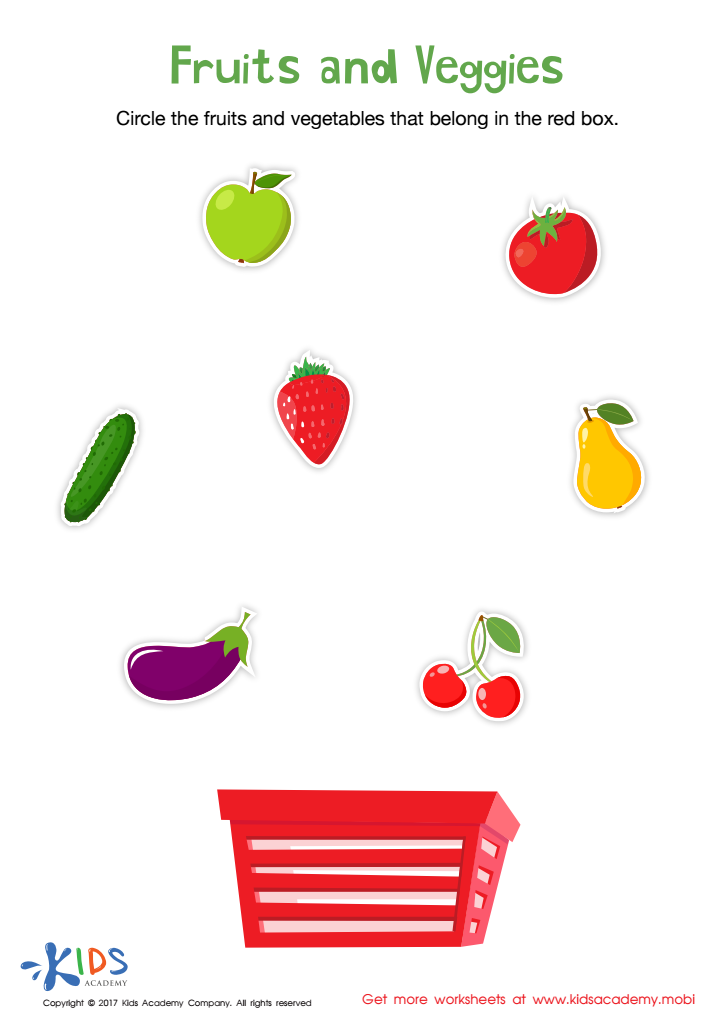Vocabulary Building Normal Matching Worksheets for Ages 3-9
5 filtered results
-
From - To
Introducing our "Vocabulary Building Normal Matching Worksheets" designed specifically for children ages 3-9. These engaging worksheets make learning fun and effective by combining colorful visuals with vocabulary exercises. Perfect for early learners, our worksheets help kids strengthen their word recognition, comprehension, and spelling skills. Through matching activities, children will connect words to pictures, enhancing their understanding and retention of new terms. A fantastic tool for both parents and educators, these worksheets foster a love for learning and set the foundation for successful language development. Explore our collection and watch your child's vocabulary blossom!


Fruits Match Up Worksheet


Matching: Classifying Toys by Size Worksheet


Vehicles Worksheet


What's the Weather Like? Worksheet
Vocabulary building is a crucial aspect of early childhood development, and parents and teachers should pay special attention to it due to its profound impact on multiple facets of a child's growth. Firstly, a rich vocabulary lays the foundation for effective communication. Children with a strong vocabulary can express themselves more clearly and understand others better, fostering confident social interactions.
Secondly, vocabulary is directly linked to literacy skills. As children learn to read, a robust vocabulary helps them comprehend text more efficiently. This leads to better academic performance across all subjects, as reading is fundamental to learning. When children can confidently understand and use a broad range of words, they are more motivated to engage with learning materials, be they stories, instructions, or textbooks.
Moreover, early vocabulary development is critical for cognitive growth. Engaging in regular vocabulary-building activities helps children enhance their memory, attention, and critical thinking skills. This cognitive development propels them toward higher-order thinking skills such as analysis and synthesis as they progress through their education.
Finally, vocabulary building fosters a love for learning and curiosity about the world. By introducing new words in exciting and meaningful contexts, whether through books, conversations, or interactive games, parents and teachers spark children's imagination and inspire them to explore new ideas.
In essence, vocabulary building between ages 3-9 equips children with essential tools for lifelong success, making it a priority for parents and teachers alike.

 Assign to My Students
Assign to My Students

















